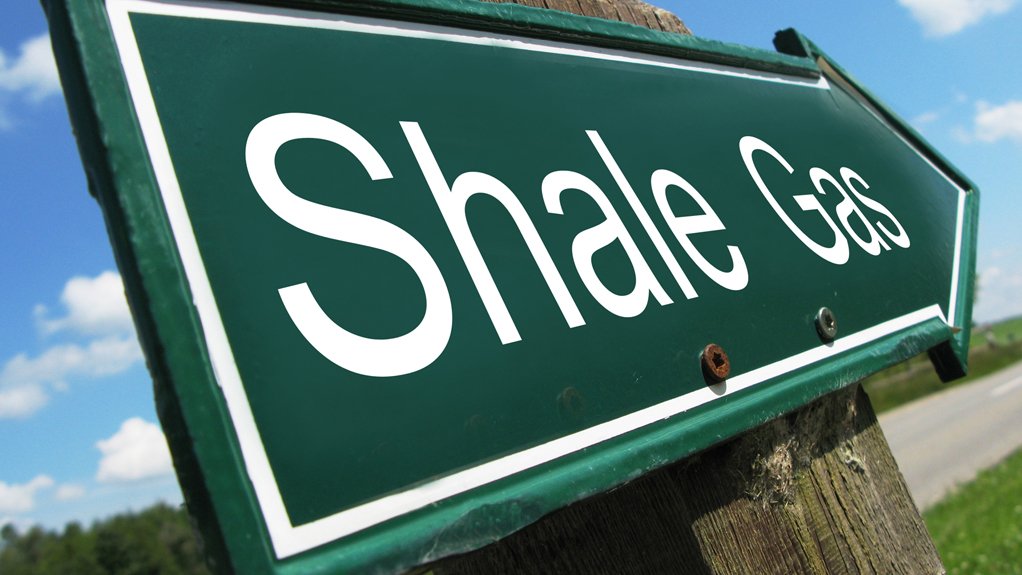Despite its economic benefits, fracking could have serious enviro implications



GASEOUS BENEFITS Hydraulic fracturing in the US has resulted in lower energy costs and ensured energy security for the country
Photo by Gazprom
MARIANNE STUART The hydrological issues related to fracking include the risk of groundwater contamination from wells and added pressures on freshwater resources
The development of technology to release unconventional gas from underground shale deposits by undertaking deep horizontal drilling has been successfully applied in the US over many years, says British Geological Survey (BGS) senior hydrogeochemist Marianne Stuart.
She points out that hydraulic fracturing (fracking) in the US has resulted in lower energy costs and ensured energy security for the country.
However, Stuart notes that this success has not been without controversy, particularly in relation to fracking’s potential to cause serious contamination of water supplies, trigger minor earthquakes and contribute negatively to climate change.
She says that the hydrological issues related to fracking include the risk of groundwater contamination from shale gas wells and added pressures being placed on freshwater resources.
In the UK, shale gas exploitation is at a very early stage and, while there are potentially significant quantities of shale available, the UK’s gas resources have not yet been proven.
“Potential source rocks occur in many areas of the UK, including the carboniferous shales of the Midland Valley, in Scotland, and across northern England, the Jurassic shales of the Wessex and Weald basins of south-east England and the Lower Palaozic shales associated with the Midland microcraton.”
Stuart further notes that there are considerable variations in the depth and thickness of each of these formations and their full extent is not yet known. She says that detailed shale gas resource estimates have been made for the northern England Bowland shale, the Weald basin and the Midland Valley.
However, Stuart highlights that these strata found in the UK differ from those exploited in the US and will represent “unique challenges” to the shale gas industry.
She explains that the extraction of these shale gas resources will require fracking, which will use and mobilise substances that are potential pollutants. These range from methane to chemicals used during the fracking process and surface activities, naturally occurring radioactive material, salinity and other substances from depth in flowback and produced water.
Stuart points out that, currently, hydrochloric acid, polyacrylamide and glutaraldehyde have been used for preliminary shale gas exploration in the UK. However, she says that a “wider cocktail” has previously been used in the US, adding that most published work relates to methane escaping into the aqueous environment.
Moreover, Stuart comments that potentially exploitable shale areas may underlie important aquifers, used for drinking water supply and for providing baseflow to rivers.
She points out that the UK obtains about 30% of its public water supply from groundwater and, therefore, ahead of any new activity which may cause contamination of these water resources, there needs to be an assessment of the risks and risk management strategy put in place to address them.
Stuart states that research on the baseline monitoring and characterisation of pathways by which pollutants could reach the groundwater and surface water receptors is required.
“It is likely that there will be areas where frack-ing will be considered as unacceptable, owing to environmental sensitivities. For the UK, the BGS has been carrying out baseline monitoring for hydrochemistry and methane in groundwater in areas which have been assessed as having resource potential,” she remarks.
The BGS has also been developing a three-dimensional model of the relationship between potential shale gas source rocks and the principal aquifers. For England and Wales, 30% of the area is underlain by shale gas source rocks and 50% by designated principal aquifers.
Meanwhile, Stuart says that pollutant pathways to aqueous receptors could include poor design or failure of the extraction well, natural and induced geological fractures and surface spills. She adds that wastewater from the extraction process will need specialised treatment, particularly to remove high levels of total dissolved solids.
Stuart emphasises that, once the fracking operation is in production, the long-term well integrity is of critical importance. She notes that there have been some studies on the impact of fracking in the US; however, Stuart cautions that these are “probably” not comparable to the much more tightly regulated environment in Europe.
“The risks must be fully assessed and man- aged effectively, from baseline to post abandon-ment,” she emphasises, adding that ongoing environmental monitoring of the site will be just as crucial.
Water Guzzler
Further, Stuart mentions that the drilling and completion of shale gas wells may require large quantities of water for maintaining hydrostatic pressure, lubrication and cooling of the drill bit, returning of cuttings to the surface and for the fracking process itself.
She says that, in new areas, it is difficult to estimate how much water will be required, owing to the pattern of development, namely the well location and rate of exploitation, as well as the hydrogeological differences from the established areas.
Stuart maintains that, in the UK, the overall requirement estimates are “relatively modest”, compared with the water resources available. However, she notes there may be challenges related to sourcing and transporting water in the time required in areas already struggling with water quantity and quality challenges.
“The Environment Agency identifies additional water demand in south-eastern England as likely to be problematic,” Stuart emphasises.
Sector Oversight
She affirms that regulatory control will be essential in this region, adding that there is a well-established and regulated oil and gas industry in the UK, which has many regulations and procedures that are already applicable or are directly transferable to the shale gas industry.
“Important existing industry monitors include the Department of Energy and Climate Change, environmental regulators, the Health and Safety Executive and local planning authorities. Additionally, the Office of Unconventional Gas and Oil has been established and is responsible for ensuring that development is safe and responsible,” Stuart concludes.
Stuart was a keynote speaker at the recent Council for Geoscience 2016 conference, which was held in Tshwane.
Comments
Press Office
Announcements
What's On
Subscribe to improve your user experience...
Option 1 (equivalent of R125 a month):
Receive a weekly copy of Creamer Media's Engineering News & Mining Weekly magazine
(print copy for those in South Africa and e-magazine for those outside of South Africa)
Receive daily email newsletters
Access to full search results
Access archive of magazine back copies
Access to Projects in Progress
Access to ONE Research Report of your choice in PDF format
Option 2 (equivalent of R375 a month):
All benefits from Option 1
PLUS
Access to Creamer Media's Research Channel Africa for ALL Research Reports, in PDF format, on various industrial and mining sectors
including Electricity; Water; Energy Transition; Hydrogen; Roads, Rail and Ports; Coal; Gold; Platinum; Battery Metals; etc.
Already a subscriber?
Forgotten your password?
Receive weekly copy of Creamer Media's Engineering News & Mining Weekly magazine (print copy for those in South Africa and e-magazine for those outside of South Africa)
➕
Recieve daily email newsletters
➕
Access to full search results
➕
Access archive of magazine back copies
➕
Access to Projects in Progress
➕
Access to ONE Research Report of your choice in PDF format
RESEARCH CHANNEL AFRICA
R4500 (equivalent of R375 a month)
SUBSCRIBEAll benefits from Option 1
➕
Access to Creamer Media's Research Channel Africa for ALL Research Reports on various industrial and mining sectors, in PDF format, including on:
Electricity
➕
Water
➕
Energy Transition
➕
Hydrogen
➕
Roads, Rail and Ports
➕
Coal
➕
Gold
➕
Platinum
➕
Battery Metals
➕
etc.
Receive all benefits from Option 1 or Option 2 delivered to numerous people at your company
➕
Multiple User names and Passwords for simultaneous log-ins
➕
Intranet integration access to all in your organisation




















